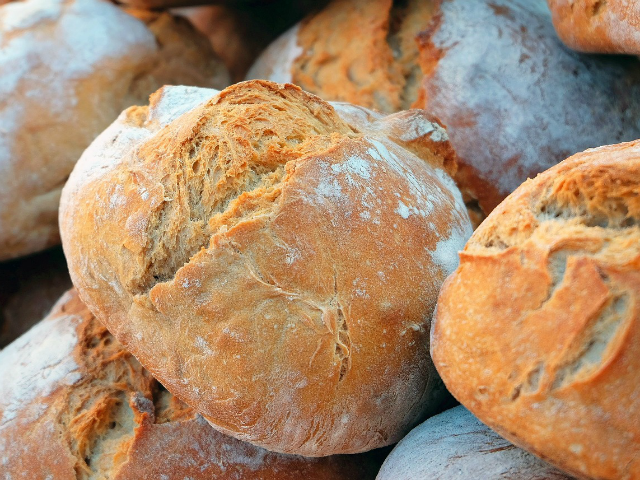Bread is killing the planet, a shock study from an environmental research group at a leading university has found.
Though hitherto thought by ignorant fools to be “the staff of life” and an important source of cheap, wholesome nutrition and readily accessible snack material, bread has now been accorded its proper place on the list of deadly, terrible things we should worry about, sandwiched between acid rain, aerosols, and anal warts on one side and cancer, Chernobyl, and Clinton (Hillary) on the other.
This is because bread, too, apparently, causes global warming.
The missing link between bread and global warming was discovered by Dr. Liam Goucher, N8 Agrifood Research Fellow from the University of Sheffield, who says:
“We found in every loaf there is embodied global warming resulting from the fertiliser applied to farmers’ fields to increase their wheat harvest. This arises from the large amount of energy needed to make the fertilizer and from nitrous oxide gas released when it is degraded in the soil.”
But Goucher was by no means the only scientist involved in this valuable research. Here’s his co-author Professor Peter Horton.
What does a staple food such as bread have to do with global warming? For a start, to make loaves on an industrial scale, you’ll need powerful milling and kneading machines and a huge oven, heated to 230? or more. This uses a lot of energy. The flour, yeast and salt must also be shipped in and, finally, the finished loaves are delivered to stores – all in trucks powered by petrol.
But it isn’t milling or baking or transport that accounts for most of the environmental impact of bread. In a new a study published in the journal Nature Plants, colleagues and I looked at the entire supply chain of a regular loaf – from seed to sandwich, via mill and bakery. We found that more than half its environmental impact arises not from food processing but from the production of the raw material, the wheat grain.
Food causes about a third of total greenhouse gas emissions. Yet the supply chains can be so complex that it is difficult to determine what part of the process is responsible – and without this information neither the industry nor consumers will know what to do about it.
The horror!
Luckily, the team at Sheffield University (which is an actual, proper university by the way, not one of those institutions where you get your degrees by post) – all of them funded by a hedge-fund billionaire called Jeremy Grantham who by complete coincidence is heavily exposed to the renewables and sustainability sector – know just what the solution is.
We should use less fertiliser. (Even though, obviously, that will make food much more expensive and agricultural land less productive and produce generally scarcer – but hey, who cares about the Third World?)
And we should just, like, eat less generally. Especially meat, apparently:
But technology isn’t the only solution – we could also change our diets. Meat, in particular, is a very inefficient use of nitrogen, as cows or chickens use up energy and nutrients simply staying alive before being slaughtered.
Quite what meat has to do with bread is not made clear. (Do they think meatloaf is the same as bread?). But it’s of a piece with the kind of intellectual rigour, scientific integrity, and general usefulness we’ve come to expect from academe where the global warming issue is concerned. I.e., none whatsoever.

COMMENTS
Please let us know if you're having issues with commenting.